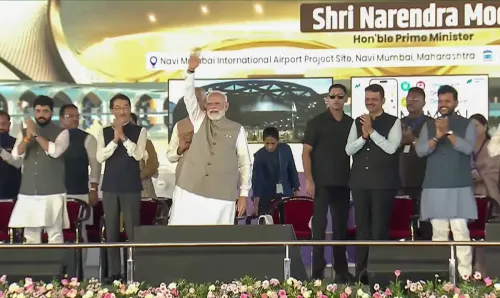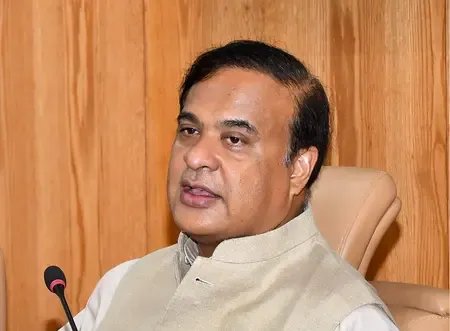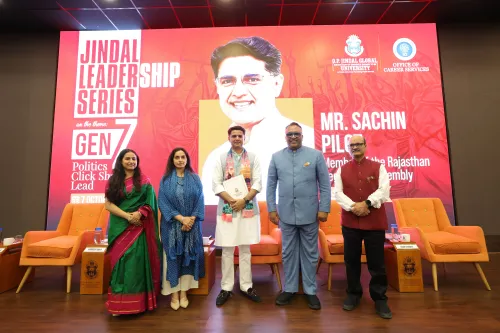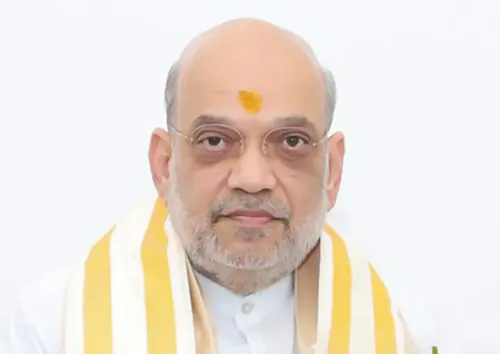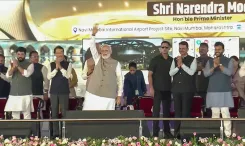What Aspects of the Independence Movement Did India Overlook?
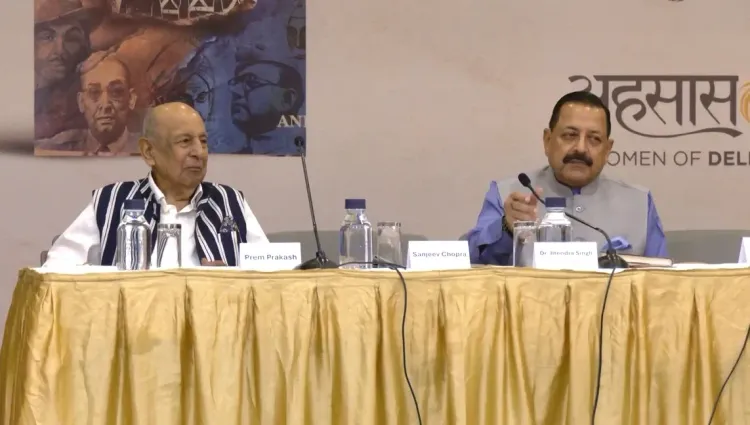
Synopsis
Key Takeaways
- Prem Prakash challenges established historical narratives.
- The sacrifices of revolutionaries are crucial to India's freedom.
- The book emphasizes the importance of recognizing all contributors to the struggle.
- It provides a comprehensive overview of historical events leading to Independence.
- Readers are encouraged to rethink the traditional portrayal of the freedom movement.
New Delhi, June 22 (NationPress) Acclaimed journalist Prem Prakash's new book 'History that India Ignored' serves as a profound re-evaluation of the struggle for India's Independence. This work confronts numerous traditional beliefs about the freedom movement, particularly concerning Mahatma Gandhi's influence in guiding the nation towards liberation in 1947.
With over seventy years of journalism experience, Prem Prakash is among India's most revered reporters, having covered crucial events in modern Indian history, including the wars of 1962 and 1965.
The essence of 'History that India Ignored' is straightforward: history often highlights Mahatma Gandhi, yet countless youths also sacrificed their lives for the cause of Independence.
His dedication to factual accuracy and historical fairness shapes his latest work, which aims to rectify the biased portrayal of India's freedom struggle that has prevailed.
As the founder of ANI, Prem Prakash conversed with Sanjeev Chopra, Author and Columnist, and Rasheed Kidwai, Author and Journalist, at a discussion event.
Jitendra Singh, Minister of State in the PMO, graced the occasion as the Chief Guest.
This thoroughly researched book chronicles India's battles against foreign invasions, from Alexander's time to the Muslim incursions and eventually the British colonial rule.
Moreover, it seeks to restore the recognition of revolutionaries such as Bhagat Singh, Veer Savarkar, Khudiram Bose, Madan Lal Dhingra, Netaji Subhas Chandra Bose, and many others whose contributions have been overlooked or marginalized in dominant historical narratives.
From executions and deportations to hunger strikes and valiant resistance, the book highlights the bravery and determination of these revolutionaries amid brutal British repression.
Prem Prakash has captured the essence of the freedom struggle throughout India, presenting a captivating and enlightening narrative that unites various uprisings and rebellions by revolutionaries, maharajahs, and Marathas.
The significance of this book is amplified by its release during a period when India is reassessing its history and identity, serving as an essential corrective.
Challenging the prevailing notion that India's Independence was achieved solely through non-violence and negotiations by the Congress, he offers compelling evidence of the crucial roles played by revolutionaries, the Indian National Army's uprising, and the 1946 mutinies in the Royal Indian Navy and Air Force in dismantling British rule.
While historians often credit Mahatma Gandhi and the Congress Party for India's freedom, it is important to note that until 1930, their demands focused on Home Rule or Dominion status.
It was only when three revolutionaries, led by Bhagat Singh, were on the verge of execution that Jawaharlal Nehru proclaimed complete Independence as the ultimate goal of India's struggle.
The revolutionaries' hunger strike compelled the British to recognize their right to fight for freedom, acknowledging them as political prisoners rather than criminals.
These often-forgotten details make the book an engaging read, as Prem Prakash asserts, 'the armed struggle by revolutionaries has been minimized or disregarded by historians.' His work endeavors to amend this historical distortion.

